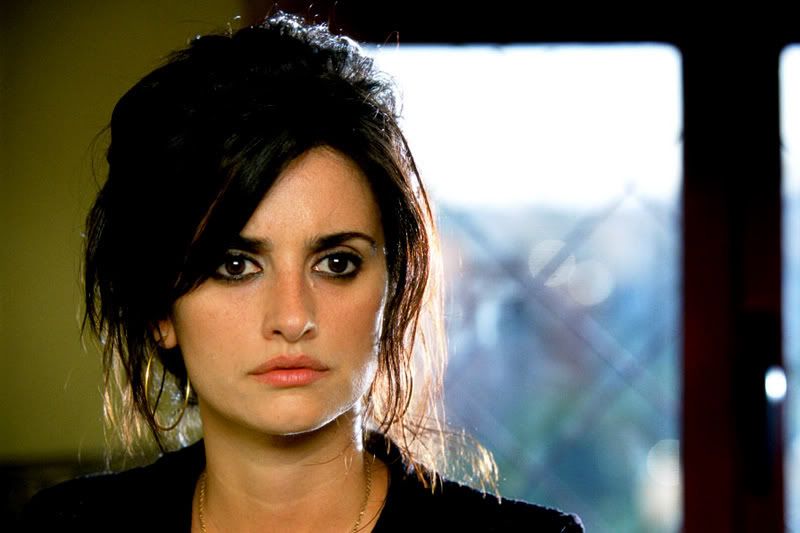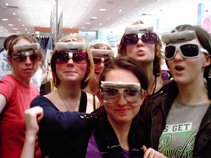
Back in the 1940s and 1950s, Hollywood was rife with directors, actors and screenwriters collaborating on classic films. Audiences were regularly treated to screwball comedies by Howard Hawks, noir masterpieces like “The Third Man” and wry satires on the film industry with “All About Eve” and “Sunset Blvd”. Billy Wilder and Alfred Hitchcock were unstoppable and charismatic. Talented stars the likes of Cary Grant, Katherine Hepburn and Bette Davis charmed the film-going population, while still retaining an air of intrigue.
Fast forward. It’s 2006 and the highest grossing film of the year is Pirates of the Caribbean: Dead Man’s Chest, a film which relies on the (admitably talented) star-power of Johnny Depp, while dispelling old-fashioned notions that what good films need are originality, good directing, believable acting and plots which make sense. A quick glance over the rest of the top-ten highest grossing films speak for themselves: a limp threequel in X-Men 3: The Last Stand, 4 computer animations still trying to best Pixar’s early output, and the adaptation of The Da Vinci Code which, despite having big profile stars and a respected director, received some of the worst reviews of the year. Is this really what we want to see on our screens? Must we shell out valuable money to see such turgid nonsense? While the majority of the film-going public may be quite happy to go along with whatever Hollywood shoves under their noses, I think its time we, as a nation full of intelligent, avid movie-watchers, made a stand and started looking outside Hollywood.
It should come as no surprise, then, that my pick for the three most inventive, brave and original films of 2006 were made in a foreign country: Pedro Almodóvar’s “Volver”, Michael Haneke’s “Caché” and Guillermo del Toro’s “Pan’s Labyrinth”.
“Pan’s Labyrinth”, the epic fantasy by Guillermo del Toro, released in December 2006, received rave reviews across the country. Arriving to our screens just in time to top many Best-Of 2006 lists, this film has been nicknamed the Citizen Kane of our time by some enthusiastic reviewers. Set in the aftermath of the Spanish Civil War, “Pan’s Labyrinth” is a visually and emotionally stunning film chronicling a young girl’s escapism from the cruelty of her world into a dreamland populated by fauns, fairies and monsters. Ivana Baquero plays the part of Ofelia, a young girl who moves to live with her new stepfather along with her heavily pregnant mother, with a maturity and naturalism far beyond her years and we warm to her from the very start, willing her on in her dangerous and frightening journey.

Probably best known for his 2004 comic book adaptation “Hellboy”, the Mexican director manages to evenly match the two aspects of his film – the harsh reality of the fascists running Spain mirroring the bizarre and often terrifying tasks Ofelia is set in the mystical labyrinth. Del Toro is not afraid to shock audiences; this is visceral film-making at its very best, with the unapologetically hateful character of Capitán Vidal as the cruel, vain, fascist general and a number of scenes which are painful to watch. However, the ultimate message of this film is one of hope and the ambiguous ending will leave audiences talking for days afterwards.
Made in 2005 but released in Britain and Ireland in 2006, “Caché” opens with a shot of a house. The camera lingers here as the credits roll. It stays on this one house for what seems like an age, unmoving, still. “What,” wonders the audience, “are we supposed to be looking at?”. Its uncomfortable viewing and we are further disconcerted as we learn that this is a sinister videotape, anonymously sent to the family who live in the house. In film-circles, the decline in use of long takes is often lamented. The 1998 blockbuster “Armageddon”, which boasts an average shot length of 2.8 seconds, is often cited as an extreme offender when it comes to the decline of long takes. It is only thanks to directors like Quentin Tarantino, who often utilises long takes in his films, that modern Hollywood fare is prevented from becoming the equivalent of television commercials. However it is only natural that to properly explore the long take we must turn to the country which invented cinema, France. In “Caché”, Michael Haneke has used long takes to their greatest possible effect. The film is suffused with shots like its opening, long unbroken streams of footage which simultaneously intrigue and repel us. Starring Juliette Binoche and Daniel Auteuil as affluent, intellectual Parisians tormented by the voyeuristic videotapes, “Caché” is a tense thriller which begs for repeated viewings. Although the ending is left unresolved, something which may irk many of those who see it, Caché leaves enough clues and symbolism, especially in its final, outstanding shot of a school, to inspire debate and argument for years to come.
Finally, we reach my pick for the Best Film of 2006, Pedro Almodóvar’s “Volver”. A quick scan over the box office top 10 of 2006 reveals the loss of pure, passionate film-making. Almodóvar sets out to rectify this, crafting a film full of colour and life, a visual love-letter to all the women who have inspired him (most notably Penelope Cruz) and his home country of Spain. These topics are nothing new to the acclaimed director, but it’s safe to say that “Volver” is one of the peaks of his career to date. The lush cinematography, a haunting score by Alberto Iglesias (who also scored Almodóvar’s “Talk to Her” and “Bad Education” ) and a career-best performance by Penelope Cruz make “Volver” not just a moving, humourous and touching tale of three-generations of women, but also a deeply rich and satisfying watch.

It’s a shame that foreign films appear to have a limited appeal. Do we really want to bombard our senses with poorly made star-vehicles and unnecessary remakes? While none of these films are obscure (all three directors are big names and Del Toro has made his fair share of Hollywood films), we tend to overlook them in favour of the big blockbusters. Perhaps it is the fact that they are subtitled, with many of us protesting that it is too much effort to simultaneously read the subtitles and follow the action onscreen. However, if we don’t make the effort to seek out foreign films, we’re denying ourselves all of the pleasure, thrills, shocks and tears that await us.
So, in 2007, with a whole new set of films lined up for the coming year, lets broaden our horizons and look beyong Tinseltown.
You never know what you might see…






No comments:
Post a Comment